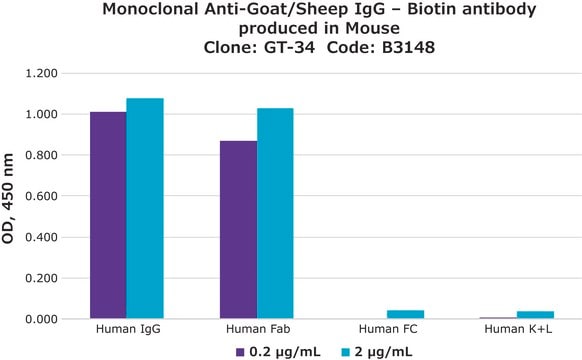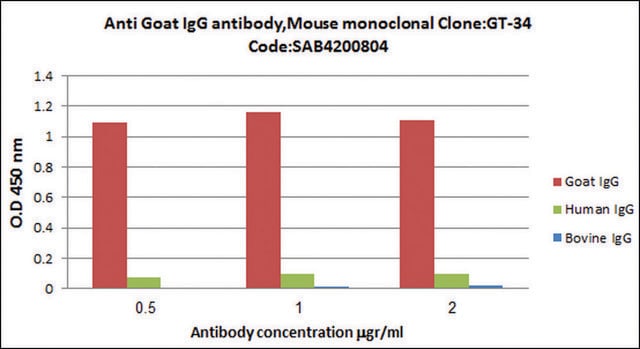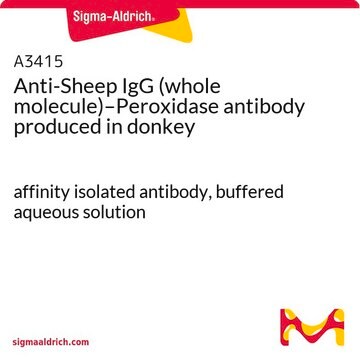F4891
Anti-Goat/Sheep IgG−FITC antibody, Mouse monoclonal
clone GT-34, purified from hybridoma cell culture
Sinónimos:
Monoclonal Anti-Goat/Sheep IgG
About This Item
Productos recomendados
biological source
mouse
conjugate
FITC conjugate
antibody form
purified from hybridoma cell culture
antibody product type
secondary antibodies
clone
GT-34, monoclonal
form
buffered aqueous solution
species reactivity
sheep, goat, bovine
should not react with
rat, canine, mouse, rabbit, guinea pig, chicken, horse, pig, feline, human
storage condition
protect from light
technique(s)
dot immunobinding: 1:32
immunohistochemistry (formalin-fixed, paraffin-embedded sections): 1:20
particle immunofluorescence: 1:32
isotype
IgG1
shipped in
dry ice
storage temp.
−20°C
target post-translational modification
unmodified
¿Está buscando productos similares? Visita Guía de comparación de productos
General description
Specificity
Application
Biochem/physiol Actions
Physical form
Storage and Stability
Disclaimer
¿No encuentra el producto adecuado?
Pruebe nuestro Herramienta de selección de productos.
Storage Class
10 - Combustible liquids
wgk_germany
nwg
flash_point_f
Not applicable
flash_point_c
Not applicable
ppe
Eyeshields, Gloves, multi-purpose combination respirator cartridge (US)
Certificados de análisis (COA)
Busque Certificados de análisis (COA) introduciendo el número de lote del producto. Los números de lote se encuentran en la etiqueta del producto después de las palabras «Lot» o «Batch»
¿Ya tiene este producto?
Encuentre la documentación para los productos que ha comprado recientemente en la Biblioteca de documentos.
Nuestro equipo de científicos tiene experiencia en todas las áreas de investigación: Ciencias de la vida, Ciencia de los materiales, Síntesis química, Cromatografía, Analítica y muchas otras.
Póngase en contacto con el Servicio técnico








